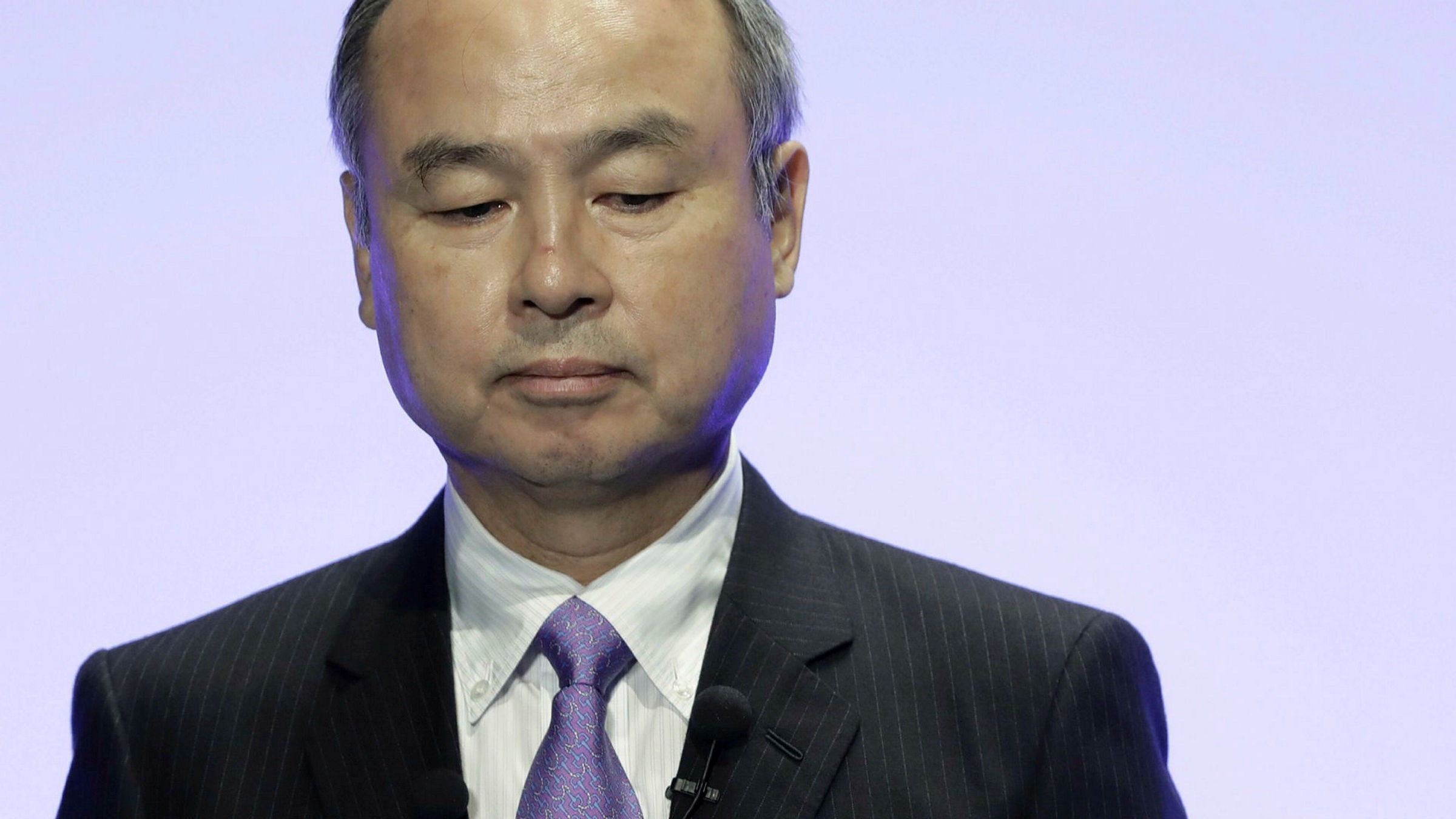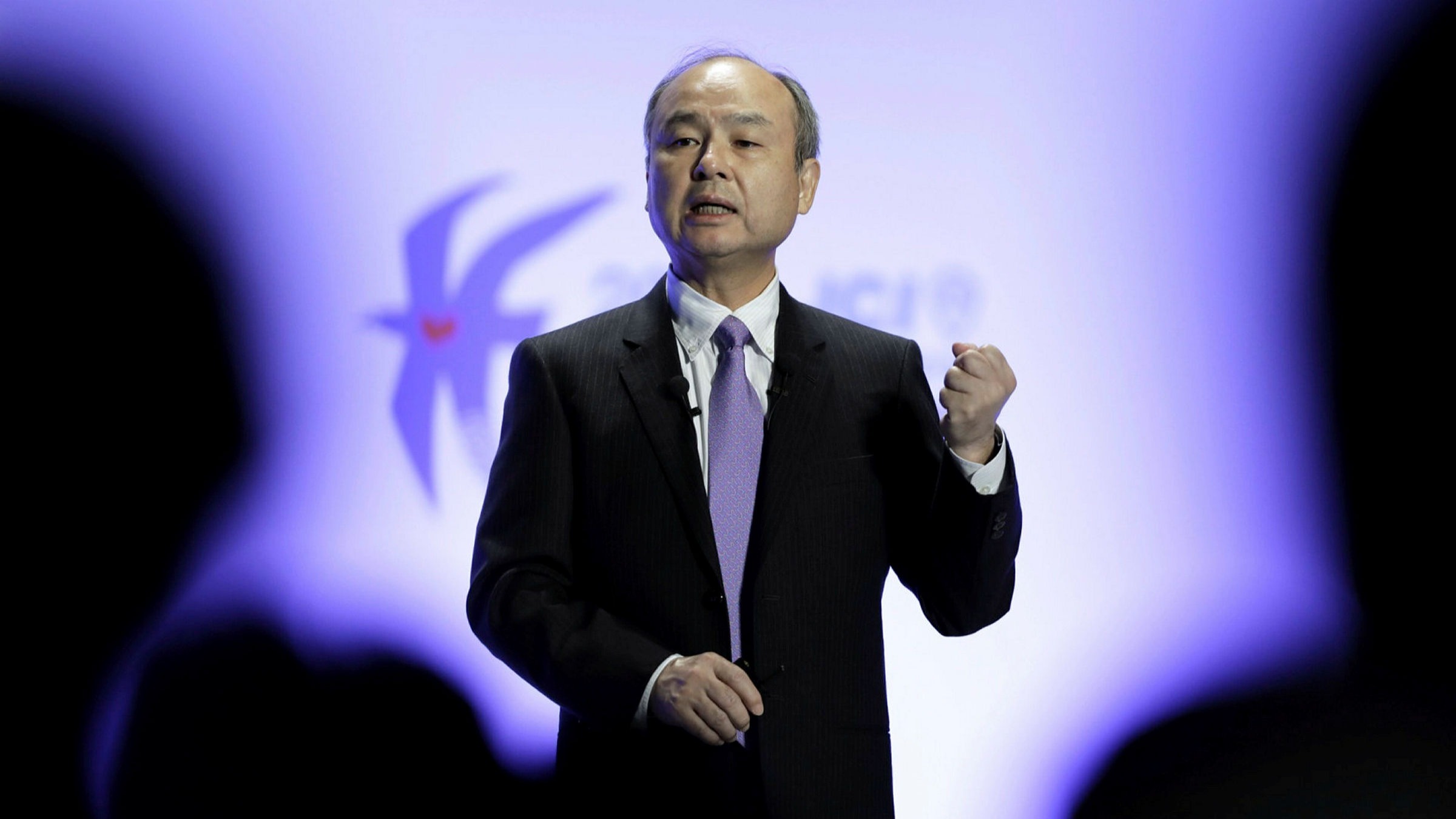SoftBank almost stops accepting new investments as it struggles with ongoing losses.

Similar to the ones he oversaw in recent years, SoftBank Group Corp.’s maiden financial report without founder Masayoshi Son showed that the Japanese company lost billions of dollars on unsuccessful startup projects.
For the December quarter, SoftBank reported a net loss of 783.4 billion yen ($5.9 billion), far less than experts’ forecast of a profit of 205.9 billion yen. The Vision Fund division was a major factor, losing 660 billion yen as a result of declining company values in its investment portfolio.
For the first time in history, Son skipped the earnings conference, leaving his top financial officer to field questions. The greatest intraday decline in over three months occurred in Tokyo trade when shares fell as much as 6%.
With the Vision Fund, a form of outsized venture capital, SoftBank made investments in startups in 2017. Over the next more than five years, it spent more than $144 billion on hundreds of firms. However, SoftBank had failures like WeWork Inc., and subsequently, the tech sector saw a severe fall as a result of investors’ ire over profitable firms. Write-downs at closely held businesses in the most recent quarter outnumbered a minor rebound in SoftBank’s stakes in publicly traded companies, namely Didi Global Inc. and Grab Holdings Ltd.
Yoshimitsu Goto, Chief Financial Officer of SoftBank, avoided the historical allusions Son frequently used in his press conference following the results and instead focused on the figures that were meant to reassure investors about SoftBank’s stability and future potential. He repeatedly stated that despite having “enough capital” to go on the attack in the future, SoftBank will continue to play defense while markets are difficult.
He was dressed in a black suit and a bright blue tie, saying, “The most essential thing is to adopt a cautious attitude when appraising the current circumstances.” I’m still trying to improve my presentations.
Goto began by launching a torrent of statistics, saying that SoftBank’s net asset worth is substantially greater than its stock price and that its loan-to-value ratio is still well below its aim of 25%. He reiterated several of Son’s catchphrases before moving on to fun field questions, such as that SoftBank aspired to be the “vision capitalist for the information revolution.
Analysts and investors expressed concern over Son’s choice to miss earnings calls. Since the 65-year-old billionaire started the business and has been in charge of all significant decisions ever since, SoftBank’s expertise in strategy is lacking in his absence.
Son transformed a once-reliable, lucrative telecoms firm into the greatest startup investor in the world because he had faith that he could build on the early wins of his backed Chinese e-commerce behemoth, Alibaba Group Holding Ltd., and replicate them. However, its investment machinery has now almost completely stopped. SoftBank invested fewer than $350 million in just a few businesses during the most recent quarter, which is a decrease of approximately 95% from the previous five-and-a-half-year average of $6 billion.
Navneet Govil, one of the senior executives at Vision Fund, said in an interview that SoftBank should be able to gain from an improvement in the economy because it has many strong companies in its portfolio. He asserts that mature companies should be able to list once the markets reopen and have a fair value of $37 billion. According to Govil, the executive managing partner at SoftBank Global Advisers, “there remains considerable uncertainty in labour markets, the future monetary policy roadmap, and business profitability,” after the findings report. Our focus is on boosting our resilience while we are still in a defensive stance.
As of now, no choices have been taken, but according to Govil, Vision Fund 2 has around $6.5 billion available for new investments. If he uses that money, he may contribute more money to the current fund or possibly start a third Vision Fund. The Vision Fund unit has fallen significantly behind its competitors and has lost money for four consecutive quarters.
The two Vision Funds’ combined performance as well as the Latin American funds decreased from a $66 billion profit to a $6.6 billion deficit. Coupang Inc., a major South Korean e-commerce company, and the GoTo Group of Indonesia were two publicly traded businesses that had their stock prices fall last quarter.
“The quarter was disappointing,” stated Kirk Boodry, an analyst at Redex Research who publishes on Smartkarma, in a report. “Vision Fund’s losses were more than projected owing to impairments in private assets and further negative came from WeWork debt.”
A successful IPO of Arm Ltd., the semiconductor design company Son that SoftBank purchased in 2016, will be one of the keys to resuming investment activity at the company. Son claimed that he intended to concentrate on that mission and that the British business would wind up pulling off the largest semiconductor company IPO in history as a result of his decision to skip earnings calls.
Arm’s most recent quarter saw consistent growth. An increase in the use of Internet-of-Things devices and high licensing costs for smartphones were the main drivers of revenue growth, which increased 28% year over year to $746 million. By December, SoftBank now intends to publicly list the business. A tactic that has in the past helped raise the stock price is the stock repurchase program that SoftBank has not yet made public. Such buybacks, according to Goto, are “constantly” addressed by the board.
Satoru Kikuchi, an analyst at SMBC Nikko Securities, stated that “we anticipate buybacks are probable in the case of large exits such as an ARM IPO or the sale of Alibaba shares.” Goto clarified that while Son is undoubtedly better at articulating the firm’s vision, it is not essential for a corporation to provide specific business objectives every quarter.
Edited by Prakriti Arora




